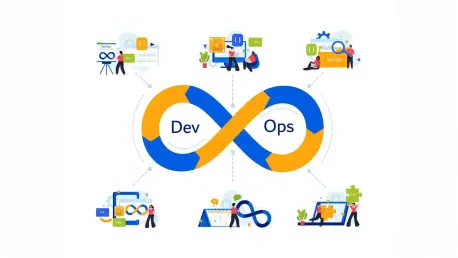The world of application security is undergoing a dramatic transformation with recent advancements in artificial intelligence, particularly in DevSecOps workflows. A notable highlight from this year’s RSA Conference is the enhanced security features introduced by Legit Security in its application security posture management (ASPM) platform. This platform, now infused with cutting-edge AI capabilities, brings a blend of vulnerability identification and proactive code remediation solutions. The AI-driven technology is designed to address pressing challenges encountered by development teams, including the myriad of alerts generated by legacy scanning tools, which often lead to overwhelmed developers opting to disable them altogether. Legit Security’s ASPM is equipped to minimize such manual efforts, offering intelligent code analysis and suggestions for modifications. App security technology is advancing, shifting focus from merely spotting vulnerabilities to actively recommending fixes, mitigating risks, and enhancing developer productivity.
Augmented AI Integration in Security Platforms
The integration of AI models within software supply chains is setting the foundation for transformative changes in security management. Legit Security’s platform has expanded its discovery capabilities, incorporating AI to conduct risk assessments and generate severity rankings for potential threats. This shift indicates the industry’s move towards automated security management, driven by AI agents programmed to manage DevSecOps workflows effectively. These agents promise to automate aspects of the software development lifecycle typically bypassed by human developers, tackling the complexities of misconfigurations, vulnerabilities, and security gaps. Enhancing visibility across the lifecycle, the AI-powered platform aims to improve developer productivity by offering an extensive view of all assets, owners, security controls, and vulnerabilities. By correlating scans and analyzing code, Legit Security strives to reduce false positives and ease the revelation of secrets embedded deep within the code.
The proactive nature of these AI incorporations is evident in their various functions, such as automated pull-request checks, which provide suggestions for code modifications. These measures alleviate the burden of vulnerability discovery and remediation tasks for developers. Such components are pivotal in a landscape where application security teams are naturally inclined towards reducing post-deployment fixes. The commitment to spotting vulnerabilities early leads to notable improvements in security measures, promising a future where shipping code with known vulnerabilities becomes a thing of the past. AI integration within DevSecOps workflows is no longer speculative; it is becoming a standard practice, signaling a notable evolution in application security strategies.
The Path Towards Robust Application Security
Artificial intelligence advancements are shaping a new reality in application security, where teams are progressively equipped to prioritize security measures even before deployment begins. This redirection enables effective prevention of costly fixes post-deployment, a critical viewpoint shared by industry experts emphasizing the value of early vulnerability detection. By embedding AI into security workflows, the future narrative points towards inherently robust application security dynamics, geared towards seamless development and deployment processes. DevSecOps teams benefit from improved efficiency, streamlined processes, and enhanced security controls, crafting a new standard for secure application development.
AI-driven technologies are transforming best practices, empowering DevSecOps to create environments conducive to effective risk management. This transformative phase is not just about technology implementation; it is about seamlessly integrating automation into security items, ultimately refining the entire software development lifecycle. As this trend gains traction, the elimination of code shipping with known vulnerabilities promises a secure, efficient, and vulnerable-free future. The ongoing dialogue about safe application development remains vital, with AI bringing forward a shift that echoes across the industry, crafting innovative solutions and revolutionizing how security protocols are perceived and executed.
Future Considerations and Next Steps
Application security is experiencing a major shift due to advancements in artificial intelligence, especially within DevSecOps processes. At the RSA Conference this year, Legit Security showcased its upgraded application security posture management (ASPM) platform, which now features sophisticated AI enhancements. These new capabilities merge the identification of vulnerabilities with proactive code remediation. The platform focuses on solving the challenges faced by development teams, such as the overwhelming number of alerts produced by old scanning tools, which often prompts developers to turn them off in frustration. Legit Security’s ASPM aims to reduce manual effort through smart code evaluation and practical suggestions for improvements. The evolution in app security technology signals a shift from simply detecting vulnerabilities to actively recommending solutions, thereby reducing risks and boosting developer efficiency and productivity. This approach helps developers focus on innovation rather than being bogged down by security alerts.









